Annapolis, MD; August 26, 2019—The Entomological Society of America congratulates the winners of its 2019 awards. The awards recognize scientists, educators, and students who have distinguished themselves through their contributions to entomology. Winners will be honored at Entomology 2019, November 17-20, in St. Louis, Missouri.
The following individuals are winners of the 2019 ESA professional, early career professional, and student awards.
Professional Awards
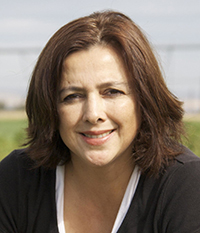 Silvia Rondon
Silvia Rondon
Oregon State University
This award, which is sponsored by Syngenta Crop Protection, recognizes outstanding contributions that have a direct relation to integrated pest management (IPM).
Dr. Silvia Rondon is a professor and extension entomology specialist at Oregon State University affiliated to the Hermiston Agricultural Research and Extension Center and the Department of Crop and Soil Sciences. She received her B.A. and M.S. degrees in entomology at the Agraria University in Lima, Perú, and her Ph.D. in crop sciences at the University of Illinois at Urbana—Champaign, where she worked on the influence of different cropping systems on the population dynamics of the western corn rootworm (Diabrotica virgifera virgifera LeConte). In 2002, Dr. Rondon worked as a postdoctoral associate in the Horticulture Department at the University of Florida in Gainesville. In Florida, her main responsibility was to develop an integrated pest management program for field and greenhouse strawberries to reduce insecticide use. In 2005, Dr. Rondon joined Oregon State University. Her areas of expertise are pest management, insect distribution, population dynamics, insects-plant interactions, biological control, and chemical control. Her work involves various cropping systems including potatoes, onions, sweet corn, small fruits, and other high-value vegetables. She has over 150 peer-reviewed scientific and extension papers, book chapters, non-peer-reviewed publications, abstracts, and reports. She has brought more than $36 million in private, state, and federal grants through her collaborations nationally and internationally. Dr. Rondon is currently working toward improving management of Lygus bugs, leafhoppers, and other pests affecting irrigated crops.
 Surendra Dara
Surendra Dara
University of California Cooperative Extension
This annual award recognizes outstanding contributions to extension entomology.
Dr. Surendra Dara is the entomology and biologicals advisor with the University of California Cooperative Extension. He has a Ph.D. in entomology from Virginia Tech and a postgraduate diploma in applied information technology from Information Technology Institute, Canada. He has nearly 25 years of experience in IPM and microbial control, working on 17 species of invasive pests and diseases and several endemic species throughout his career. He has authored/co-authored 350 scientific and extension articles, which include three co-edited books, one co-edited special issue of a journal, 13 book chapters, and 50 peer-reviewed journal articles. He is currently working on addressing pest and disease issues of small fruits and vegetables with conventional and biological options, and finding alternative uses for entomopathogenic fungi as biofungicides and biostimulants. He has a strong research and extension program that develops innovative solutions for sustainable crop production and protection, and he reaches out to the agricultural community locally, regionally, and internationally. As a volunteer, he provided training in pest management, IPM, and crop production to farmers in Bangladesh, Haiti, Kosovo, Moldova, Mozambique, and Myanmar, and to visitors from Bosnia and Herzegovina, Bulgaria, and Colombia. He is currently serving on various committees or holding offices at the University of California, the Society for Invertebrate Pathology, the Entomological Society of America, and the Association of Applied IPM Ecologists. He publishes two e-journals and is a subject editor for the Journal of Economic Entomology. Dara was recently featured as a Western Innovator by Capital Press for his work in biologicals.
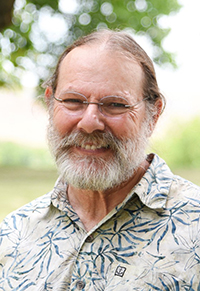 Allan Felsot
Allan Felsot
Washington State University
This award is presented annually to the member of the Society deemed to be the most outstanding teacher of the year.
Dr. Allan Felsot is a professor in the Department of Entomology in the College of Agricultural, Human, and Natural Resource Sciences (CAHNRS) at Washington State University (WSU). He received his B.S. degree in biology from Tulane University and his M.S. and Ph.D. degrees in entomology from the University of Florida and Iowa State University, respectively. His current responsibilities at the Tri-Cities campus of WSU are divided among teaching, research, and extension while serving as academic director for math and science and as the graduate coordinator for environmental sciences. Dr. Felsot teaches across disciplines and video streams courses to the several academic campuses of WSU and the Research & Extension Centers. Course titles that he currently teaches include General Entomology, Ecological and Integrated Pest Management, Pesticides and the Environment, Biotechnology and the Environment, Plant Physiology, and The Ecosystem. Additionally, he has developed online versions of his IPM and pesticide courses for the WSU M.S. in agriculture online (Global Campus) degree. He also developed a third online-only course, Agricultural Chemical Technology for Crop Protection and Production. Dr. Felsot has received the WSU CAHNRS Excellence in Extension Award and the RM Wade Foundation Excellence in Teaching Award, and he was a member of the Urban IPM and Pesticide Safety Team that received the CAHNRS Team Interdisciplinary Award. Other honors include the ESA Founders Memorial Award and the American Chemical Society Agrochemicals Division Fellow Award. Dr. Felsot's philosophy of teaching promotes skeptical inquiry to challenge "authority" through examination and communication of evidence-based information. He encourages students to be curious about scientific and technological subjects and to read the primary research literature.
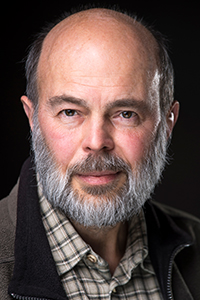 Gerhard Gries
Gerhard Gries
Simon Fraser University
Each year this award is given to an ESA member who is able to demonstrate through his or her projects or accomplishments an ability to identify problems and develop creative, alternative solutions that significantly impact entomology.
Dr. Gerhard Gries is a professor in the Department of Biological Sciences at Simon Fraser University (SFU). He received his Ph.D. in forest entomology from the Georg-August-Universität in Göttingen, Germany, in 1984. Supported by a postdoctoral fellowship from the Deutsche Forschungsgemeinschaft, he joined Dr. John Borden's laboratory at SFU in 1986. After a two-year limited-term appointment, he became a tenure-track faculty member in 1991, reaching the rank of full professor in 2000. He is currently in the 16th year of an industrial research chair on multimodal animal communication ecology, supported by BASF, Scotts Miracle-GRO, and the Natural Sciences and Engineering Research Council of Canada. The chair's research embraces most sensory modalities (olfaction, vision, audition, vibration, magnetoreception, infrared sensing). A recent highlight was the identification of the bed bug aggregation pheromone, comprising five volatile attractants and one nonvolatile arrestant. Gerhard has graduated 57 students, has published 273 peer-reviewed research articles (including more than 50 with undergraduate students as co-authors), has been granted 15 patents, and has produced 13 scientific films on beetles, hoverflies, and aphids in collaboration with the Institute of Scientific Film in Germany. He has received over $11 million of research support as a principal investigator and currently runs a large laboratory with 13 graduate students, three research associates, and many undergraduate students, often recruited from his Insect Biology class. His passion for teaching was recognized by SFU in 1994 through an Excellence in Teaching Award and by a Distinction in Student Mentoring Award from the ESA (Pacific Branch) in 2019.
Early Career Professional (ECP) Awards
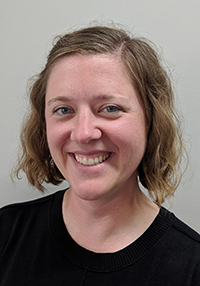 Alison Gerken
Alison Gerken
USDA Agricultural Research Service
This grant provides research funds to postdoctoral ESA members who have at least one year of promising work experience, are undertaking research in selected areas, and have demonstrated a high level of scholarship.
Dr. Alison Gerken is a postdoctoral researcher with the USDA Agricultural Research Service in Manhattan, Kansas, where she researches stored product insect pest management and control. Alison grew up in South Dakota with an irrational fear of crickets but went on to study aggressive interactions between male stalk-eye flies while obtaining a B.S. in psychology and M.S. in biology from the University of South Dakota. She then went to Kansas State University for her Ph.D. work, where she studied the quantitative genetics of cold tolerance in Drosophila. Her work at the USDA focuses on a variety of behavioral, physiological, and genetic responses to pheromone lures, cold stress, insecticide-treated netting, mating disruption, competition among species, and the effects of diet on reproduction. Currently, Alison is working to develop a high-throughput system for quantifying the calling and oviposition behavior of Plodia interpunctella and Trogoderma variabile females in response to pheromones, to better understand the impacts of mating disruption on the females within a system. She is also leading a collaborative genetics project to understand the behavioral genetics of responses to pheromones in Tribolium castaneum. Alison enjoys science outreach and has served as a National Science Foundation GK-12 Fellow in a high school classroom, as a Boy Scout insect merit badge instructor, and as a member of the Communication and Outreach Early Career Professional Committee through the Genetics Society of America. She also enjoys mentoring students in the laboratory, guiding them in conducting their own research and asking interesting questions.
 Joe Louis
Joe Louis
University of Nebraska—Lincoln
This award honors young professionals working within the field of entomology who have demonstrated innovation through contributions within any area of specialization (research, teaching, extension, product development, public service, etc.).
Dr. Joe Louis is an associate professor in the Department of Entomology at the University of Nebraska—Lincoln (UNL). He received his B.S. in agriculture from Kerala Agricultural University (India), M.S. in entomology from Kansas State University, Ph.D. in molecular biology from the University of North Texas, and postdoctoral training at Pennsylvania State University. His research interests are to identify the key components/genes/signaling mechanisms that are involved in modulating plant defenses upon insect herbivory and to understand the mechanisms by which insect salivary proteins/effectors alter the plant defense responses. Dr. Louis' research has produced more than 35 publications in several top-ranked plant science, entomological, and interdisciplinary science journals. His research program has been supported by nearly $2.5 million in grant funds. Dr. Louis' research has also been recognized through a number of prestigious awards, including the Eric E. Conn Young Investigator Award from the American Society of Plant Biologists for his significant contributions to the field of plant-insect interactions as well as his demonstrated excellence in outreach, public service, mentoring, and teaching, and the Harold & Esther Edgerton Junior Faculty Award from UNL for demonstrating creative research, extraordinary teaching abilities, and academic promise. He was also recently awarded a $1.5 million CAREER grant from the National Science Foundation. In addition to his research, Dr. Louis is involved in multiple education/outreach projects particularly including student populations underrepresented in science. At UNL, he also teaches two graduate-level courses: Insect Control by Host Plant Resistance and Chemical Ecology of Plant-Insect Interactions.
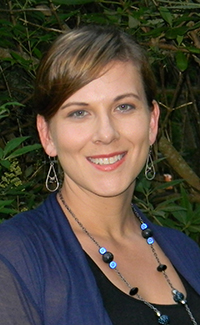
Pennsylvania State University
This award is given to a student transition or early professional who excels in entomological extension.
Dr. Erika Machtinger is an assistant professor and extension educator in the Department of Entomology at the Pennsylvania State University. Dr. Machtinger's extension expertise is medical and veterinary entomology, focusing on arthropod pest control in poultry, equine, and livestock facilities as well as ticks and tick-borne disease prevention and control. Her extension program includes local, regional, and national stakeholder presentations and workshops, online course development, learn-now videos, and publication of pest control guides and notices. Recently, Dr. Machtinger and extension administration at Penn State established the Vector-Borne Disease Extension Team with the goal of reducing the transmission of tick-borne and other vector-borne diseases to animals and people in Pennsylvania through impactful education.
Dr. Machtinger holds a B.S. from the University of Delaware in wildlife conservation and ecology and an M.S. and Ph.D. in entomology from the University of Florida. As the principal investigator for the Veterinary Entomology Laboratory at Penn State, Dr. Machtinger's research focuses on arthropod pests of veterinary concern. The mission of the Veterinary Entomology Laboratory is to reduce the health risks to wild and domesticated animals associated with arthropod vectors and parasites. Current projects include understanding the ecology of mange infection in American black bears, understanding tick chemical ecology, and developing better fly control products for poultry facilities. She is an active member of ESA in the Medical, Urban, and Veterinary Entomology Section and serves on the ECP Committee as the MUVE representative.
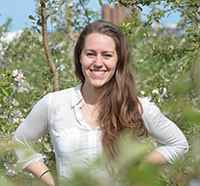
Cornell University
This award recognizes a student transition or early professional who has made outstanding research contributions to the field of entomology.
Dr. Heather Grab received her bachelor's degree in biology from Ursinus College and her Ph.D. in entomology with Dr. Greg Loeb at Cornell University. Heather is currently a USDA NIFA Postdoctoral Research Fellow working with Dr. Katja Poveda at Cornell University.
Dr. Grab is broadly interested in understanding how environmental changes and species' traits affect the community composition and persistence of insects that provide important agricultural ecosystem services, including wild bees and natural enemies of crop pests. She integrates large-scale field experiments with methods from landscape ecology, community ecology, and phylogenetics to understand patterns in community variation and to reveal their consequences for crop productivity. Her work focuses on three areas. First, her research in the area of community phylogenetic ecology has revealed that land use change acts as a filter on different branches of the bee evolutionary tree, resulting in communities with more closely related species and overall lower pollination services in simplified landscapes. Second, her work has demonstrated the importance of landscape context in mediating the success of on-farm habitat restorations aimed at supporting beneficial insects. Recently, her research has focused on how trait variation within species responds to environmental stressors, including land use change and pesticides. Her research provides insights into the basic ecology of agriculturally important insects while delivering relevant recommendations for both conservation and applied insect management. Heather is active in extension and outreach and has taught multiple courses on quantitative methods and statistical modelling at Cornell. For more information, please visit her website, http://www.landscape-agroecology.com/.
 Elizabeth Murray
Elizabeth Murray
Smithsonian National Museum of Natural History
This award is given to a student transition or early professional who excels in entomological education.
Dr. Elizabeth Murray received her B.A. in biology from Gustavus Adolphus College in St. Peter, Minnesota. She completed her M.S. in entomology at Kansas State University and her Ph.D. in entomology at the University of California, Riverside. Her research background and interest in phylogenetics led her to join the Department of Entomology at Cornell University as a lecturer, where she designed and instructed a new course on applied phylogenetic methods: Model-Based Phylogenetics and Hypothesis Testing. She taught this course in 2015 and 2016, then taught Insect Diversity and Evolution in 2017.
Elizabeth incorporates broader scientific training and professional skills into her curriculum in addition to the course material. From her phylogenetics course, some students transferred their phylogenetic education into journal articles or dissertations. In her insect systematics course, she guided students through projects on developing species web pages on insects that occur on the Cornell University campus. In the classroom she uses discussions, peer-to-peer learning, and hands-on activities, with the objective of engaging students and presenting material for diverse learners.
Elizabeth Murray is currently a Peter Buck Postdoctoral Fellow at the National Museum of Natural History, Smithsonian Institution, in Washington, D.C. Starting in 2020, she will continue her research and course instruction as the Telford Family Professor and Director of the M.T. James Entomological Collection in the Department of Entomology at Washington State University.
ESA Certification Corporation Awards
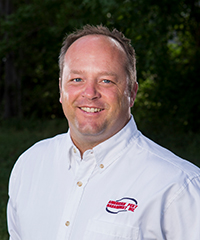 Travis Aggson, ACE
Travis Aggson, ACE
American Pest Management Inc.
The purpose of the award is to recognize superior contributions of an ACE in the field of structural pest management.
Travis Aggson, ACE, serves as the executive vice president for American Pest Management Inc. in Manhattan, Kansas. If you ask his mom, his career started when he was 3 years old after he was attacked by a colony of ants. Officially, he started in the pest control industry when he was 14 years old, working with the termite crew in his hometown. Travis graduated from Kansas State University with a degree in business administration/finance. At Kansas State, he found a small family-owned pest control company that needed part-time help. Twenty-four years later, he is working with the same family that gave a hungry, baby-faced college student a chance.
Travis has served on several National Pest Management Association committees; he is a member of the Leadership Development Group, current chair of Marketing to Membership, and past chair of the Technical Committee. He also has served on the Pest Management Foundation Board. Travis has been active in the Kansas Pest Control Association, serving as president in 2014, when his main initiative was to improve technician education. He served as Education Committee chair for seven years and helped establish a Master Technician Program partnership with Kansas State University.
Outside of wrangling pests, he and his wife, Jenny, have three children and enjoy traveling. He and his oldest son, Connor, are Scuba Certified and take the opportunity to dive whenever the opportunity arises.
ESA Student Awards
- Ethan Degner, Wisconsin Lutheran College (ESA Eastern Branch)
- Seunghyun Lee, Seoul National University (ESA International Branch)
- Ryan Schmid, Ecdysis Foundation (ESA North Central Branch)
- Brendon E. Boudinot, University of California, Davis (ESA Pacific Branch)
- Lina Bernaola, Louisiana State University (ESA Southeastern Branch)
- Jocelyn R. Holt, Texas A&M University (ESA Southwestern Branch)
These six awards are given to one graduate student from each ESA Branch to promote interest in entomology and to stimulate interest in attending the ESA Annual Meeting.
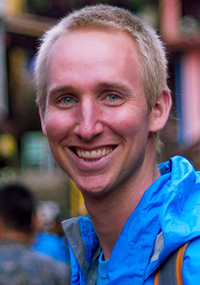 Ethan Degner
Ethan Degner
Wisconsin Lutheran College
Dr. Ethan Degner (Eastern Branch) received his Ph.D. in entomology from Cornell University under the direction of Dr. Laura Harrington. Ethan received his bachelor's degree from Gustavus Adolphus College in Saint Peter, Minnesota, where he focused on fisheries biology and natural resources. However, an internship at the Smithsonian Tropical Research Institute in Gamboa, Panamá, found him working with leaf-cutter ants and quickly ignited his passion for entomology. Wanting to study insects that transmit human diseases, he joined the Harrington Lab at Cornell, where he studied several poorly understood aspects of mosquito reproduction. His work clarified several persistent notions about Aedes aegypti reproductive biology, including the notion that females are always monogamous (they sometimes mate more than once, and usually shortly after their first mating); that males produce very few sperm as adults (they may produce many, given sufficient larval nutrition); and that sperm are static cells that simply act as a vessel for paternal DNA (Aedes aegypti sperm shed an entire coat and membrane after they are stored and prior to fertilization). During his time at Cornell, he discovered a passion for teaching and undergraduate mentorship. Through these efforts, he won a college-wide Outstanding TA Award and helped one of his mentees publish his senior thesis in the Journal of Medical Entomology. Together, his dissertation research and graduate teaching experiences prepared him well for his new position as assistant professor at Wisconsin Lutheran College, where he currently serves.
 Seunghyun Lee
Seunghyun Lee
Seoul National University
Seunghyun Lee (International Branch) has been deeply obsessed with the remarkable biological diversity of life and morphology of longhorned beetles since childhood. In 2014, he started his academic career as a Ph.D. student in the Insect Biosystematics Laboratory at Seoul National University, under the supervision of Professor Seunghwan Lee.
His Ph.D. research focuses on understanding the longhorned beetle under systematic, phylogenetic, and evolutionary aspects. More specifically, his research on the Cerambycine beetle in South Korea has discovered several numbers of new distributional records, as well as a handful number of species that are new to science. In addition, he described complete life history (including host species, host condition, feeding habit, and pupal chamber) and immature morphology of numerous South Korean Cerambycinae. His last dissertation chapter elucidates the evolutionary history of host plant use, the evolution of ovipositors, the effect of biological traits on ovipositor morphology, and the related organs using multigene phylogeny.
He published an illustrated guidebook of Korean Cerambycidae that covers all 357 species of longhorned beetle in the Korean peninsula, in addition to 10 peer-reviewed articles. He has also received numerous awards from or related to the academic field, public speeches, and a wildlife photo contest. Lee received the Talent Award of Korea (Deputy Prime Minister and Minister of Education of Korea Award) for his outstanding entomological research and popularization of science in 2016.
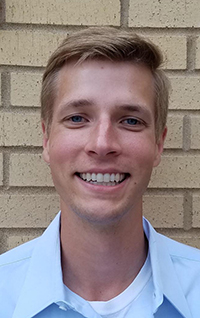 Ryan Schmid
Ryan Schmid
Ecdysis Foundation
Ryan Schmid(North Central Branch)grew up on a small farm in northwest Iowa and credits his upbringing for generating a passion to work closely with farmers. His interest in entomology and its importance to agriculture began while he was working as an undergraduate biological science aid in an entomology research lab for Dr. Jonathan Lundgren. Upon completion of his B.S. degrees in biology and microbiology in 2011 from South Dakota State University (SDSU), Ryan pursued graduate programs that merged his newfound appreciation of entomology with a desire to help farmers and stakeholders. Consequently, Ryan earned an M.S. degree from SDSU in 2014 working with Dr. Lundgren on biological control of weed seeds in farming systems, and a Ph.D. in entomology from Kansas State University in 2018 under the direction of Dr. Brian McCornack, studying novel insect-monitoring techniques. Ryan's graduate school experiences have honed his research interests to focus on insect ecology and pest management and in applying those interests to help farmers and ranchers innovate their conventional farming systems to produce food, fuel, and fiber with minimal adverse impacts on the land. Currently, he is a research scientist with the Ecdysis Foundation, working closely with ranchers to investigate ecosystem services provided by arthropod communities in their regenerative rangeland management programs.
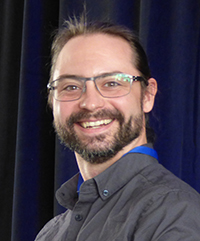 Brendon E. Boudinot
Brendon E. Boudinot
University of California, Davis
Brendon E. Boudinot (Pacific Branch) is a doctoral candidate in the Department of Entomology and Nematology at the University of California, Davis, where he is advised by Dr. Phil Ward. He received his bachelor of science degree in entomology at the Evergreen State College in Olympia, Washington, where he worked as a Fellow of the natural history collections and as a technician sorting ants for Dr. Jack Longino's biodiversity surveys of Mesoamerica. Brendon is broadly interested in the origin and evolution of complex phenotypic systems, and he specializes in ant taxonomy and morphological evolution within the Aculeata and across the Arthropoda. At Davis, Brendon has combined comparative morphology, molecular phylogenetics, and paleontology to provide the first male-based keys to the ant subfamilies of the world, a general theory for the male and female genitalic homologies of the Hexapoda, and the first total-evidence dating analyses of the Formicidae. As a student member of ESA, Brendon organized a symposium on evolutionary and phylogenetic morphology, has been awarded the President's Prize in the Systematics and Evolutionary Biology Section three times, and has been a championship member of three Linnaean Games teams. Brendon has also dedicated his time to his department, serving as president of the Entomology Graduate Student Association for three years and as co-chair for several committees, and has twice led an introductory entomology course taught entirely by graduate students. His postdoctoral research aims are to use computational anatomy to model mechanical evolution of aculeate legs and to develop a three-dimensional digital atlas of morphology.
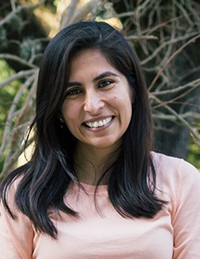 Lina Bernaola
Lina Bernaola
Louisiana State University
Dr. Lina Bernaola (Southeastern Branch) was born in Lima, Peru. She received her Ph.D. in entomology from Louisiana State University (LSU) under the direction of Dr. Michael Stout. Lina earned her B.S. in biological sciences from San Marcos National University, Peru, and later completed her M.S. in agronomy at LSU. Her research interests include plant-insect and plant-pathogen interactions as well as host plant resistance. Her project involves investigations of the mechanistic basis of plant resistance against above-ground and below-ground organisms in rice. Primarily, she studied the effects of mycorrhizal fungi, a symbiotic soil-borne organism, on rice resistance to insect herbivores and pathogens. The ultimate goal of Lina's research is to provide a better understanding of plant-insect-mycorrhizae interactions in rice pests of Louisiana, which will help to develop more effective pest management programs in rice.
Lina has been actively involved in the Entomological Society of America since 2013. She has presented her research at several international, national, and Southeastern Branch meetings; she has also participated in LSU's Linnaean Games and Student Debate teams. Currently, she serves as student representative to the Governing Board and vice chair to the Student Affairs Committee. She has served on the P-IE Governing Council as the student representative and as president of LSU's Entomology Club, coordinating many of the club's educational outreach events about insects to kids. She is very grateful to the society for the many opportunities it has provided her. She has had a lifelong interest in science and looks forward to sharing this passion with younger generations.
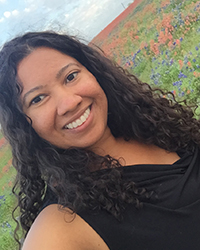
Texas A&M University
Jocelyn R. Holt's (Southwestern Branch)research is increasing our understanding of the interplay between genetics and insect mutualisms in invasive species. She is assessing the role insect microbiomes play in mediating mutualisms among insects. Her research has revealed microbial differences between sugarcane aphids (SCA) that seem to correspond to genetic differences of sorghum or sugarcane populations. She is also investigating whether these genetically distinct SCA populations differ in their attractiveness to ants and is examining the fine-scale genetic structure of the tawny crazy ant to inform future integrated pest management. Jocelyn was born in California, where she completed a B.S. in biology at Cal Poly Pomona and an M.S. in biology at CSUN. She received a graduate Diversity Excellence Fellowship and a Lechner Excellence Fellowship to attend Texas A&M, where she is currently a Ph.D. candidate. She is committed to increasing diversity in academia and to facilitating the retention of women in STEM fields, seen by her participation in the ESA Student Affairs Committee, Aggie Women in Entomology, LAUNCH Program, and TAMU WISE. She fosters the next generation of scientists through teaching and mentorship of undergraduate researchers. Jocelyn's research and service exemplify her passion for entomology and science advocacy.
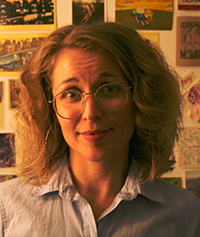 Amy Geffre
Amy Geffre
University of California, San Diego
This ESA award, sponsored by Corteva, recognizes Dr. Larry Larson's role as a leader and pioneer in insect management and carries that legacy to the next generation of leaders in applied entomology.
Amy Geffre is a social insect biologist and pollinator health researcher. Of special interest to her are adaptations that social insects, like honey bees, have evolved to deal with pathogen threat in the context of social living. Additionally, she is interested in the interface at which honey bees interact with other pollinators, and how diseases are transmitted between species at shared resources. Her previous work includes exploring how pathogens and parasites modify the behavior of social insect hosts, including how viral pathogens alter social behavior of honey bees and the potential ramifications of this on modern apiculture. Her current projects focus on how modern apiculture can benefit from better understanding of the biology and ecology of feral honey bees. Through her research, she hopes to improve beekeeping practices to better ensure the health of insect pollinators in general.
Geffre has enjoyed many opportunities to work with wonderful colleagues and citizen scientists of all ages. She has been a visiting entomologist at schools from kindergarten to high school, and she has created and presented outreach events including pollinator exploration and habitat improvement activities. She has also been privileged to work with the Young Engineers and Scientists and SYMBI K-12 programs, in which she strove to give high school students hands-on science experience and encourage them to pursue science-related goals throughout their lives. Additionally, she is a scientific illustrator and uses these skills to create educational material and displays for the public as well as for scientific works.
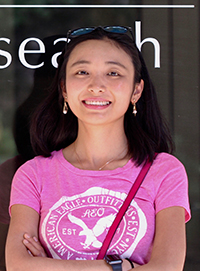 Yan Yan
Yan Yan
Vanderbilt University
The purpose of this ESA award is to encourage graduate students working with insects or other arthropods in the broad areas of physiology, biochemistry, and molecular biology to affiliate with ESA's Integrative Physiological and Molecular Insect Systems Section and to attend the ESA Annual Meeting.
Yan Yan became fascinated with insect physiology while working as a visiting scholar at Purdue University in the laboratory of Dr. Dieudonné Baributsa and Dr. Larry Murdock. There, she investigated how the low-oxygen environment in sealed grain containers could be harnessed to kill storage insect pests. Since finishing her research at Purdue, Yan has been pursuing a doctoral degree at Vanderbilt University in the laboratory of Dr. Julián Hillyer. At Vanderbilt, she employs organismal, molecular, and imaging approaches to decipher the physiological interaction between the immune and circulatory systems of insects, focusing on mosquitoes. Specifically, Yan investigates how the immune cells of mosquitoes respond to pathogenic infections and how the aggregation of immune cells in specific regions of the heart helps mosquitoes to overcome infections.
Yan has published eight peer-reviewed papers, four of them as the first author. She received first place in the Student Paper Competition at the 2018 joint annual meeting of ESA, ESC, and ESBC. Yan is also the recipient of a Vanderbilt University dissertation enhancement grant, which is enabling her to use biochemical tools to further understand mosquito physiology.
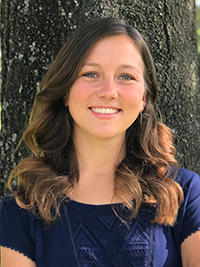 Casey Parker
Casey Parker
University of Florida
Sponsored by Bayer, this award will be presented annually to recognize a student for outstanding contributions to the Society, his/her academic department, and the community, while still achieving academic excellence.
Casey Parker, a Ph.D. candidate at the University of Florida, discovered her love for biology on the horse farm she grew up on in Ocala, Florida. Her fascination with the natural world led her to pursue a B.Sc. in entomology and nematology. During her time as an undergraduate, she took an interest in vector biology and control of public health pests. After her B.Sc., she completed an M.Sc. in entomology and nematology and master of public health degree. Her current research focuses on insecticide resistance, the impact of resistance on vector competence, and developing community education campaigns to combat mosquitoes. Casey's work has been published in several journals, including Journal of Medical Entomology, Journal of Insect Science, and Journal of Vector Ecology.
Casey also enjoys engaging in science communication opportunities and getting involved in professional organizations. Casey has given numerous presentations at regional, national, and international conferences and has received speaking awards at several of these meetings. She also actively participates in leadership and outreach activities such as hosting educational programs in local schools and delivering international vector control training programs. In Casey's time as an ESA member, she has served as the chair of both the Southeastern Branch and National Student Affairs Committee, a role that allowed her to assist in planning annual meetings, symposia, and student events. Casey would like to thank ESA for providing her with these opportunities, and she looks forward to spending a career continuing to support the entomological and vector control community.
This award recognizes and encourages outstanding entomology graduate students with interest in the mission of the ESA certification program.
 Ashley Kennedy, BCE-Intern
Ashley Kennedy, BCE-Intern
Army Public Health Center
Dr. Ashley Kennedy is originally from Lorton, Virginia. She studied vervet monkeys for her undergraduate thesis research at Johns Hopkins University and completed internships and seasonal positions at the Smithsonian Environmental Research Center (Maryland), the National Zoo (D.C.), and the Smithsonian Conservation Biology Institute (Virginia). In 2013, she completed her M.S. in the Department of Entomology and Wildlife Ecology at the University of Delaware, where she studied delphacid planthopper taxonomy in the lab of Charles Bartlett, Ph.D.
In summer 2019, Ashley received her Ph.D. in the lab of Doug Tallamy, Ph.D., at the University of Delaware. Her dissertation research focused on bird-insect food webs, using photography to learn which insects are most important in bird diets. She is also a Class of 2017 Science Policy Fellow, a 2018 recipient of the John Henry Comstock Graduate Student Award, and a member of the Delaware Native Species Commission. She is excited to compete in the Linnaean Games for the fifth and final time this year.
Ashley is currently an ORISE Postdoctoral Fellow in the Tick-Borne Disease Laboratory at the Army Public Health Center in Maryland. Outside of entomology, Ashley enjoys classic literature and volunteering with her therapy dog at prisons and libraries.
CONTACT: Joe Rominiecki, jrominiecki@entsoc.org, 301-731-4535 x3009
ABOUT: ESA is the largest organization in the world serving the professional and scientific needs of entomologists and people in related disciplines. Founded in 1889, ESA today has nearly 7,000 members affiliated with educational institutions, health agencies, private industry, and government. Headquartered in Annapolis, Maryland, the Society stands ready as a non-partisan scientific and educational resource for all insect-related topics. For more information, visit www.entsoc.org.
